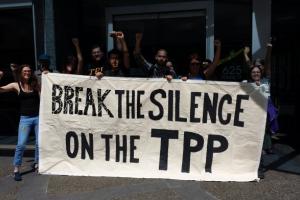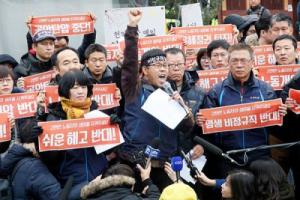Iranian workers continue to struggle for independent trade unions
Equal Times
 During Iran’s post-revolution reform era (1997-2005), a new wave of trade unionism began in the country. However, this spring of unionism quickly turned to winter, and most union leaders were arrested when President Mahmoud Ahmadinejad came to power in 2005. Nowadays, any attempts by workers to organise strikes are met with severe repercussions by security agents. Nonetheless union resistance is growing.
During Iran’s post-revolution reform era (1997-2005), a new wave of trade unionism began in the country. However, this spring of unionism quickly turned to winter, and most union leaders were arrested when President Mahmoud Ahmadinejad came to power in 2005. Nowadays, any attempts by workers to organise strikes are met with severe repercussions by security agents. Nonetheless union resistance is growing.










Spread the word